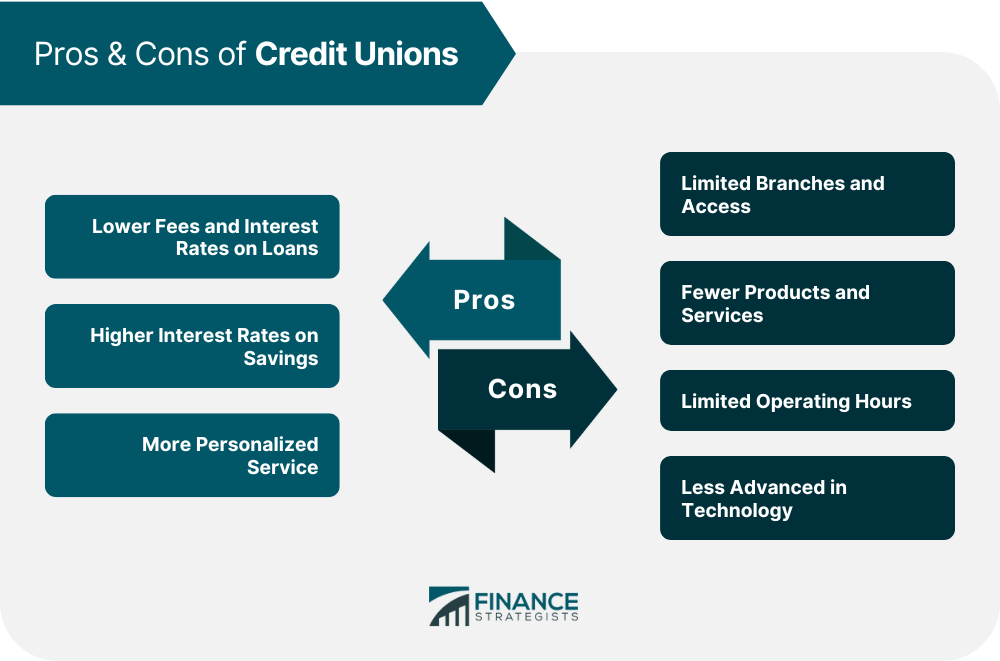Opening the Advantages of Cooperative Credit Union: Your Guide
In the realm of banks, lending institution stand as a distinct and commonly underexplored alternative for those seeking a more customized strategy to banking. As we look into the details of lending institution, a globe of chances and benefits unfolds, using a glimpse right into an economic landscape where community values and member-focused solutions take spotlight. From their humble starts to their contemporary influence, recognizing the essence of credit scores unions can potentially reshape the way you see and handle your finances.

Background of Cooperative Credit Union
Cooperative credit union have a rich background rooted in the participating movement, dating back to the 19th century. The concept of credit report unions arised as a feedback to the economic demands of people who were underserved by standard banks. Friedrich Wilhelm Raiffeisen, a German mayor, is usually credited with starting the initial contemporary lending institution in the mid-1800s (Wyoming Credit Unions). Raiffeisen developed participating financing cultures to assist farmers and country neighborhoods accessibility economical credit history and leave the clutches of usurious loan providers.
The idea of individuals collaborating to pool their resources and provide financial assistance per other spread swiftly throughout Europe and later on to The United States and Canada. In 1909, the very first credit union in the USA was established in New Hampshire, marking the beginning of a brand-new era in community-focused banking. Ever since, lending institution have actually remained to focus on the economic health of their participants over revenue, personifying the cooperative principles of self-help, self-responsibility, democracy, equal rights, solidarity, and equity.
Subscription Eligibility Requirements
Having actually established a foundation rooted in cooperative principles and community-focused financial, lending institution keep specific subscription qualification criteria to guarantee placement with their core worths and objectives. These standards frequently rotate around a common bond shared by potential participants, which might consist of elements such as geographic place, company, organizational association, or membership in a certain area or association. By needing members to fulfill specific eligibility requirements, lending institution intend to foster a feeling of belonging and shared objective amongst their members, reinforcing the participating nature of these economic institutions.
In enhancement to typical bonds, some lending institution might likewise prolong subscription qualification to relative of present participants or individuals that reside in the exact same home. This inclusivity aids cooperative credit union increase their reach while still staying real to their community-oriented principles. By maintaining clear and transparent subscription standards, credit rating unions can ensure that their members are actively participated in sustaining the cooperative values and objectives of the institution.
Financial Products and Solutions
When thinking about the array of offerings available, cooperative credit union supply a varied array of economic product or services customized to fulfill the distinct demands of their members. These offerings typically include cost savings and inspecting accounts, loans (such as automobile lendings, individual fundings, and home mortgages), charge card, and various financial investment choices. One crucial benefit of credit history unions is their concentrate on giving competitive rate of interest rates and lower charges contrasted to standard financial institutions. Participants commonly benefit from customized client service, as cooperative credit union prioritize building strong connections with those they serve.
Furthermore, credit score unions regularly use monetary education and counseling to aid members boost their economic literacy and make notified choices. Lots of cooperative credit union additionally take part in shared branching networks, permitting participants to access their accounts at a selection of areas across the country. Generally, the variety of economic product or services provided by credit score unions highlights their commitment to satisfying the diverse requirements of their participants while prioritizing their financial health.

Advantages Over Standard Financial Institutions
Demonstrating a distinctive technique to economic solutions, credit rating unions supply several benefits over conventional financial institutions. One crucial benefit is that cooperative credit union are commonly member-owned, suggesting that revenues are reinvested into the organization to supply far better rates and lower charges for participants. This participating framework commonly brings about more customized client service, as credit scores unions prioritize member satisfaction over optimizing revenues. In addition, cooperative credit union are known for their affordable rates of interest on cost savings accounts, car loans, and charge card. This can cause higher returns for participants that save or borrow money with the lending institution contrasted to conventional banks.
In addition, credit score unions tend to have a solid focus on financial education and learning and community support. They usually provide workshops and resources to help members boost their monetary literacy and her response make audio finance decisions (Credit Union in Cheyenne Wyoming). By cultivating a sense of community and shared objectives, debt unions can produce a much more comprehensive and encouraging banking environment for their members
Neighborhood Involvement and Social Influence

By teaming up with these entities, credit unions can amplify their social influence and address critical concerns influencing their communities. In essence, credit history unions serve as catalysts for favorable change, driving area growth and social development via their energetic participation and impactful efforts.
Final Thought
To conclude, lending institution have an abundant history rooted in neighborhood and collaboration, offering a varied series of financial services and products with competitive rates and personalized customer support. They focus on the financial health my blog of their members over profit, fostering a feeling of belonging and offering financial education. By actively participating in social effect campaigns, credit history unions create a this encouraging and inclusive financial atmosphere that makes a positive distinction in both specific lives and neighborhoods.
Friedrich Wilhelm Raiffeisen, a German mayor, is commonly attributed with establishing the initial modern debt union in the mid-1800s - Credit Union Cheyenne WY. By requiring participants to meet certain eligibility needs, credit unions intend to foster a feeling of belonging and shared function among their participants, enhancing the cooperative nature of these economic establishments
Additionally, credit report unions often provide monetary education and learning and counseling to assist members improve their monetary literacy and make educated decisions. In general, the variety of economic products and services used by credit scores unions highlights their dedication to meeting the diverse needs of their participants while prioritizing their economic well-being.
Additionally, debt unions are understood for their affordable rate of interest prices on savings accounts, finances, and credit cards.